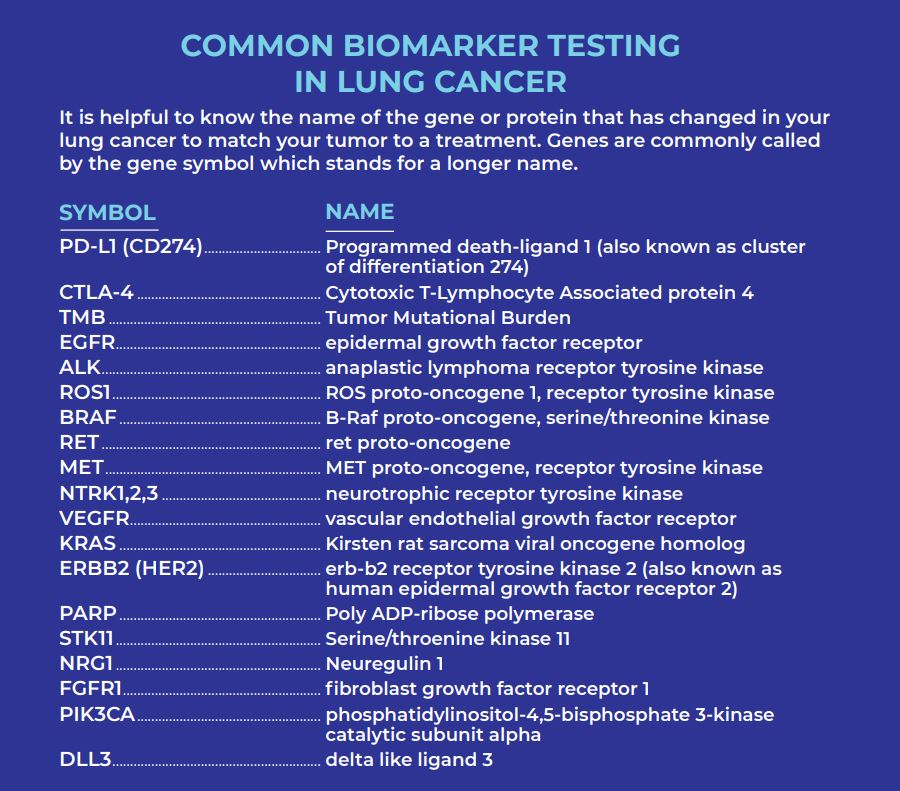Every person’s cancer is different. Between all of the lung cancer treatment options available, how can you and your treatment team identify the best path for your individual case? Enter: comprehensive biomarker testing.
Comprehensive biomarker testing (also called molecular testing) looks for biological changes, like EGFR or ALK, that may be associated with your cancer. In this blog, we’re answering the big questions about comprehensive biomarker testing.
How does it work? 
In most cases, comprehensive biomarker testing involves testing a piece of tissue from the cancer (a biopsy) for changes in the genes or proteins in cancer cells. In some cases, you may have a liquid biopsy, which is a test done on blood, urine, or sputum.
Why is it important?
We encourage all patients to receive testing. You and your treatment team may make different decisions about your treatment based on the gene and protein changes in your cancer. This is known as precision medicine (formerly personalized medicine) – forming a treatment plan specifically for you.
If I test positive for a biomarker, what are my treatment options?
Many of the changes that identified by comprehensive biomarker testing occur in a small percentage of the cancers. There are approved treatments for only some of those changes. If there is not an approved treatment for the changes in your cancer, there may be a clinical trial that would be a good match for you.
What’s the next step? Talk with your treatment team or call our LungMATCH Treatment and Trials Specialists at 1-800-298-2436 to find out how to get tested or discuss the results of your tests and possible treatment options available for you.
Click here to download our Comprehensive Biomarker Testing one-pager.
Want to learn more? Check out our library of free educational materials to help you every step of the way through your lung cancer journey.

This is a great article. I believe they did this testing when I received news that I have Stage 4 Lung and Liver Cancer. They tested my blood made recommendations for treatment. I only received 5 chemo treatments. I now just receive Keytruda every 3 weeks for my immune. My cancer is stable. (I do not like to refer as remission, because my cancer will never go away). Highly recommend this test on people that have been diagnosed.